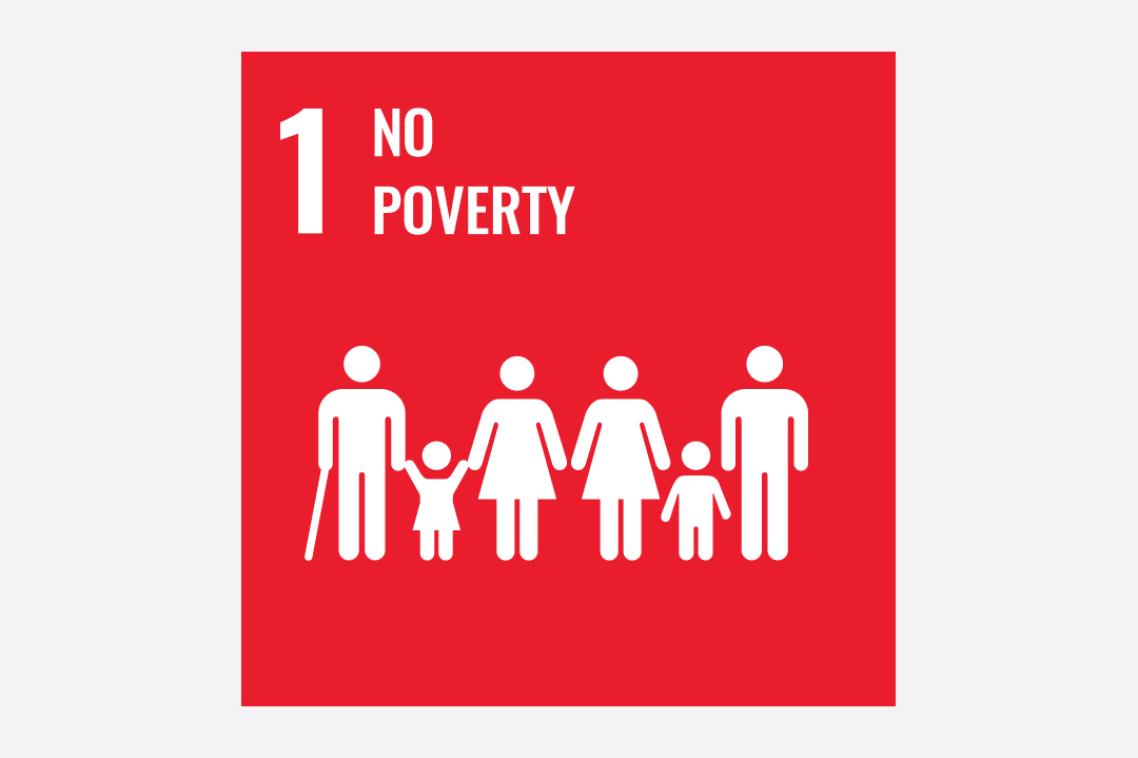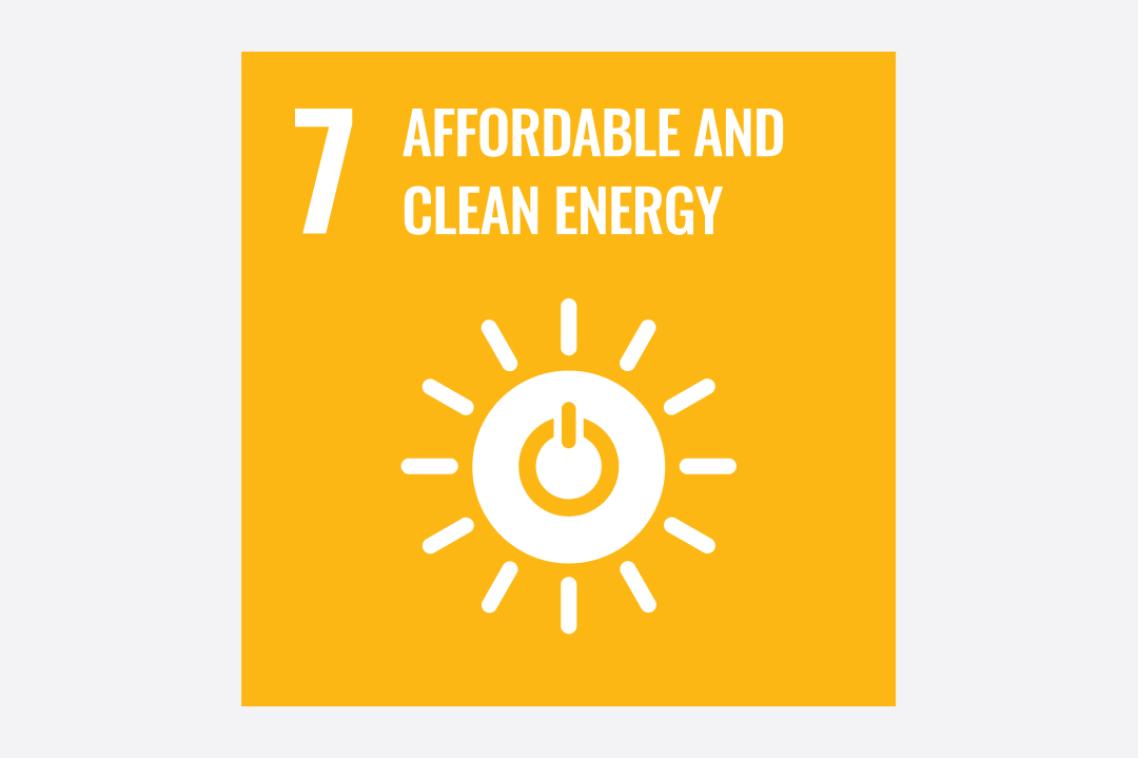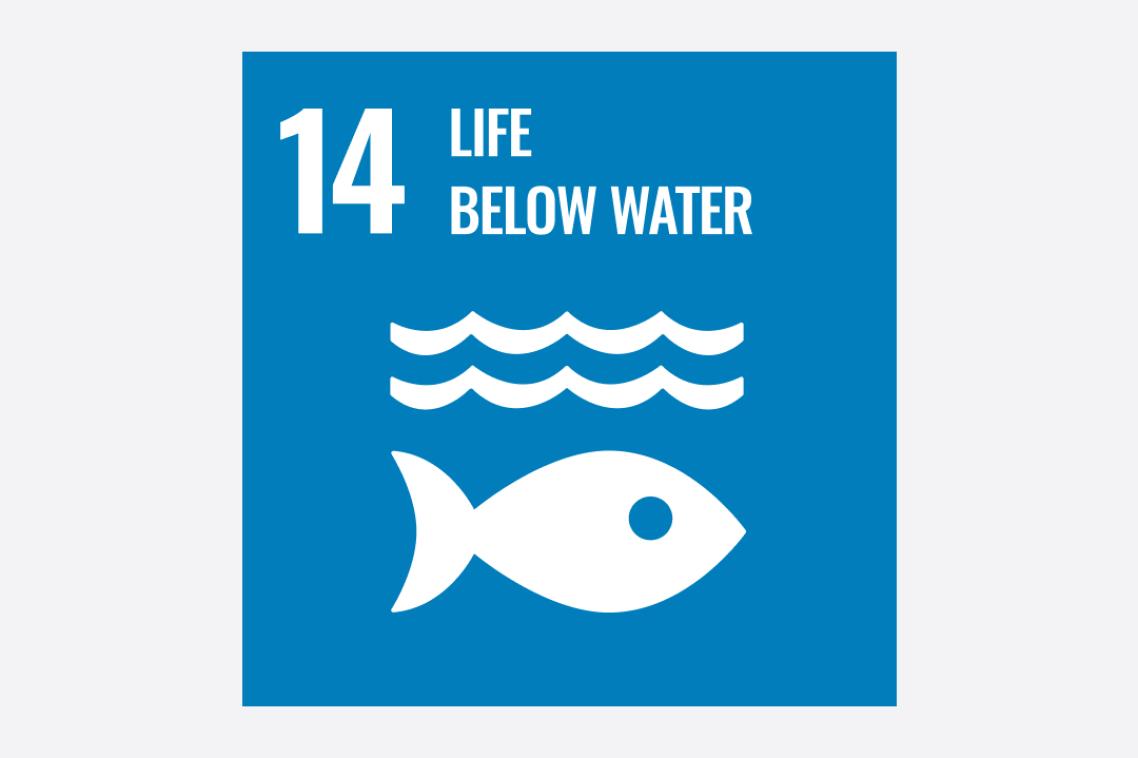SDG 13 – Climate action

2024 progress
The University of Queensland (UQ) plays a leading role in advancing climate action through education, research, and community engagement. UQ supports low-carbon energy use and is committed to reducing greenhouse gas emissions, aligning with global sustainability goals.
Our educational initiatives include executive programs and community campaigns that promote climate literacy and empower informed decision-making. We collaborate with governments, NGOs, and Indigenous communities to support the development of climate action plans, disaster preparedness strategies, and sustainable housing solutions for flood-affected regions.
Research at UQ drives innovation in sustainable infrastructure, low-carbon materials, and renewable energy. Projects like stormwater management, reef restoration, and low-carbon concrete help communities adapt to climate impacts. UQ also informs government policy and industry practices through initiatives such as the Biosustainability Hub and the ARC Centre of Excellence for Green Electrochemical Transformation of Carbon Dioxide (GETCO2), which transform carbon emissions into valuable resources.
Internationally, UQ fosters knowledge exchange through workshops and masterclasses on green hydrogen and climate justice. Its interdisciplinary approach connects science, policy, and community, making UQ a key contributor to climate resilience and sustainability. Through these efforts, UQ demonstrates a strong commitment to SDG 13, helping build a more sustainable and climate-conscious future.
Read our SDG 13 2024 report (PDF, 219.62 KB)
See how we make a difference across key areas:
Operational measures
Low carbon energy use and tracking
UQ’s Sustainability Strategy 2022-2025 demonstrates a clear vision of a low carbon and sustainable future for UQ. UQ continues to take actions towards a low-carbon energy future.
- UQ actively tracks its low-carbon energy usage and has implemented comprehensive energy monitoring systems that measure the proportion of energy sourced from low-carbon and renewable sources, including solar and green power procurement.
- UQ has behind the meter solar PV installations on numerous buildings across 4 campuses, totalling approximately 7MW and also a 1MW/2MWh battery storage system plus 3 ML chilled water storage system.
- In 2024, UQ embarked on a building audit program to identify energy saving opportunities. The first building was completed and identified potential savings of ~3% through standardisation and optimisation of cooling and heating setpoints and alignment of automation time scheduling on HVAC assets.
- In 2024, UQ undertook a major chiller replacement in the Queensland Bioscience Precinct complex. The new chillers are substantially more energy efficient and are forecast to save approximately 800 MWh per annum or 0.6% of our total usage.
Environmental education measures
UQ actively supports environmental education through diverse local and global initiatives focused on climate change impacts, mitigation, adaptation and disaster planning.
Local education programmes on climate
Universities play a vital role by developing and delivering tailored programs, resources and campaigns that engage communities, industries and governments in local education initiatives that address climate change risks, impacts, mitigation, adaptation and early warning systems. These efforts foster climate literacy, empower informed decision-making, and promote sustainable practices. UQ exemplifies this through diverse educational projects that span executive training, community engagement and interdisciplinary learning.
How we are achieving this
Executive Education – Climate Change Program
The University of Queensland’s Executive Education Climate Change Program is a customisable learning initiative designed for industry and public sector leaders. It equips participants with tools to understand their organisation’s role in a low-carbon future and navigate climate-related transitions. Developed by UQ Business School academics, the program integrates cutting-edge research and tailored content to meet specific organisational needs. It promotes climate literacy and strategic action, aligning with corporate sustainability goals and fostering leadership in climate mitigation and adaptation.
Shared Climate Action Plan
UQ recognises that it plays a key role in supporting the development and sharing of Climate Action Plans with local governments and community groups. UQ is contributing to effective strategies for climate mitigation, adaptation and resilience, fostering collaborative efforts to meet sustainability goals.
How we are achieving this
Queensland Decarbonisation Hub
The Queensland Decarbonisation Hub is a multi-institutional initiative funded by the Queensland Government and led by UQ’s Centre for Policy Futures. The Hub works in direct partnership with the government, providing expert advice on how to achieve net zero emissions and lead the state’s approach to climate adaptation. This is done through interdisciplinary research that is demand-driven and collaborative, policy brokerage that enables two-way dialogue with decision-makers, policy advice which is scoped and timed to inform live decisions, and outputs and deliverables that are designed for system-level influence. Connecting Queensland universities, industry, government and communities, the Hub exemplifies the co-development of a shared climate action plan by drawing together existing decarbonisation knowledge to develop research and policies that can support the state’s industries and communities while safeguarding and enhancing its natural environment.
Co-operative planning for climate change disasters
Co-operative planning for climate disasters involves universities working with governments and communities to prepare for and respond to climate-related emergencies. These efforts include developing housing for displaced people and restoring damaged ecosystems. UQ supports this through collaborative projects that combine research, innovation and community engagement.
How we are achieving this
Low-carbon temporary housing system for northern NSW
This project, described in a UQ-authored paper published in 2024, is designed to help communities affected by natural disasters such as the floods in northern New South Wales by developing emergency housing made from recycled materials like cardboard and timber. Led by the NSW Government and supported by UQ, the initiative focuses on creating sustainable, low-carbon homes. The housing units are prefabricated and designed with input from local residents to ensure they meet community needs, with a prototype on display from 3 to 5 December 2024 for interested community members to view. This partnership between government, researchers and industry shows how co-operative planning can deliver practical solutions for people displaced by climate disasters, while also promoting environmentally friendly building practices.
Coral Reef Rescue: Resilient Coral Reefs, Resilient Communities project
The global pressure of climate change along with local human induced pressures are contributing to the rapid deterioration of coral reefs ecosystems – jeopardising the lives of the millions of people that rely on these coastal resources. The Global Environment Facility (GEF) funded Coral Reef Rescue project is a multi-stakeholder project implemented through the World Wildlife Fund (WWF GEF Agency). The project execution team is led by UQ in partnership with project country Focal National Government Ministries and National Technical Partners. The project is working to safeguard globally significant climate refuge reefs in 6 countries:
- Fiji
- Solomon Islands
- Indonesia
- Philippines
- Madagascar
- Tanzania.
In 2024, the UQ-led project team attended the 10th Global Environment Facility International Waters Conference (IWC10) in Uruguay, which had the theme ‘Transformative actions and impacts for the water and ocean SDGs’ to showcase national hubs as platforms for inclusive governance and coral reef conservation, using examples from Fiji and Indonesia. The team demonstrated how the national hub approach can be a vehicle for partnerships and collaboration to ensure the long-term conservation and management of coral reefs through this and future projects. It is a strong example of how co-operative planning can address environmental damage and build resilience against future climate impacts.
Inform and support government
Universities play a vital role in helping governments prepare for climate-related risks. By sharing research and expertise, they support early warning systems, disaster planning and sustainable development. UQ contributes through projects that inform policy, improve infrastructure, and guide environmental decisions at local, regional and international levels.
How we are achieving this
Sustainable low carbon concrete for future infrastructure
The SmartCrete Cooperative Research Centre project (2023-2026) led by UQ, is designed to help governments and industries adopt low-carbon concrete for roads and infrastructure. Researchers work with state transport departments and industry groups to test concrete mixes made from recycled materials like plastic and glass. The goal is to reduce carbon emissions and landfill waste while updating national standards for construction. By informing government standards and building practices, the project supports climate action and sustainable development. It is a practical example of how universities can help governments make environmentally responsible choices in infrastructure planning.
Renewable energy as post-mining land use
The Renewable Energy as Post Mining Land Use (2023-2024) project explored how former mining sites in Queensland can be repurposed for renewable energy, like solar and wind farms. Led by UQ, researchers reviewed legal and regulatory challenges and proposed ways to update policies. They worked with government agencies to identify viable pathways for approval and implementation. The project highlights the need for coordinated planning and policy reform to support clean energy development. By informing government decisions, it helps pave the way for sustainable land use and climate-friendly energy solutions in post-mining regions.
Biosustainability Hub
The UQ Biosustainability Hub is a $60 million initiative uniting researchers, industry and government to develop sustainable, economically viable biological solutions to global challenges. Based at the Australian Institute for Bioengineering and Nanotechnology (AIBN), the Hub focuses on 5 key areas:
- agri-food innovation
- gas fermentation
- synbio mining
- biofuels
- digital biology.
By co-locating experts and stakeholders, it accelerates the translation of synthetic biology into real-world applications. Government collaboration plays a vital role in supporting Australia’s transition to net zero, positioning the Hub as a national leader in biomanufacturing and sustainable industrial transformation.
GETCO2 (Green Electrochemical Transformation of CO2)
GETCO2 is a UQ-based ARC Centre of Excellence dedicated to transforming carbon dioxide from a climate liability into a valuable resource. This $45 million, 7-year initiative unites 7 Australian universities, industry and government to develop electrochemical technologies that convert CO₂ into fuels and chemicals. The Centre is advancing innovations in catalysis, electrolysers and scalable CO₂ conversion systems. With a strong focus on training future experts, GETCO2 aims to support Australia’s circular carbon economy and lead global efforts toward net-zero emissions by 2050.
Environmental education collaborating with NGOs
Collaborating with non-governmental organisations (NGOs) helps universities extend their climate education and adaptation efforts into communities. These partnerships combine academic research with grassroots knowledge to create practical, inclusive solutions. UQ works with NGOs on projects that support climate resilience, communication and sustainable development across Australia and internationally.
How we are achieving this
Exploring the dynamics of community consultation and consent
Dynamics in Consultation and Consent is an interactive learning resource developed by UQ’s Centre for Social Responsibility in Mining and published in 2024. It explores principles and practices of consultation and consent in natural resource management, with the publication part of an initiative on community-smart consultation and consent supported by the BHP Foundation and implemented by Landesa, in partnership with RESOLVE, Conservation International, and the Centre for Social Responsibility in Mining at UQ. Designed for stakeholders across government, civil society and academia, the resource encourages critical reflection and group discussion, and promotes informed engagement in climate adaptation and resilience planning.
Research and innovation
UQ contributes significantly to SDG 13 through innovative research addressing climate change mitigation, adaptation and resilience. UQ’s work spans sustainable urban design, renewable materials, tourism decarbonisation, energy transition, agriculture and policy engagement. These projects inform global and regional strategies, promote low-carbon technologies and foster interdisciplinary collaboration. From nature-based stormwater solutions to green hydrogen education and climate policy networks, UQ’s research drives practical and scalable climate action. These efforts support informed decision-making, sustainable development and cross-sectoral partnerships, reinforcing UQ’s role as a leader in climate-focused research and innovation.
Sustainable infrastructure and low-carbon innovation
Stormwater management research
UQ researchers from the Faculty of Engineering, Architecture and Information Technology (EAIT) collaborated with global experts to develop best practices in sustainable stormwater management using nature-based urban design. The project promotes climate resilience through green roofs, permeable pavements and rain gardens. These solutions help cities adapt to extreme weather by reducing flood risks and improving water quality. The stormwater management research, published in 2024, includes international case studies and advocates for integrating water-sensitive design into urban planning, such as the exploration of the Birkha Bawari (stepwell) Project in Jodphur, India that harvests 17.5 million litres of rainwater annually, offering a practical path toward more climate-resilient and sustainable communities.
Renewable marine blue biomass
The international network Building with Blue Biomass is an initiative that investigates how marine resources like algae, seagrass and shellfish can be used to create sustainable building materials. The research, led by the Royal Danish Academy and involving UQ as a founding partner alongside collaborators from 3XN/GXN Architects, the Danish Technical University, Arup, University College London and Queensland University of Technology, aims to replace traditional, high-emission construction inputs with biodegradable, bio-based alternatives. By promoting a circular economy and reducing the carbon footprint of the building industry, the initiative supports climate action and innovation in green materials. It also highlights the potential of marine ecosystems in contributing to low-carbon development.
Tourism Destination Decarbonisation Toolkit
UQ developed a digital toolkit to help tourism destinations build climate mitigation capacity and decarbonise tourism. Based on research and real-world case studies, the toolkit provides practical strategies across 9 decarbonisation areas. It is designed for destination management organisations (DMOs) to develop a coherent and comprehensive climate mitigation plan for systemic change, and includes a mobile-friendly website to increase accessibility. The project supports the tourism sector’s transition to sustainability and was showcased at COP29, the 2024 United Nations Climate Change Conference in Azerbaijan, underlining its global relevance in addressing climate change through industry-specific solutions.
Zero Net Emissions Agricultural CRC
Established on 1 July 2024, the Zero Net Emissions Agriculture Cooperative Research Centre (ZNE-Ag CRC) is an initiative brokered by UQ and the Queensland Department of Agriculture and Fisheries. This UQ-led national research centre brings together over 70 partners to reduce emissions in agriculture. With $300 million in funding, the initiative supports innovation in farming practices, technologies and supply chains. It aims to help Australia meet its climate targets while maintaining agricultural productivity. The CRC collaboration includes 16 major industry groups, all 6 Australian state governments and the Northern Territory, 10 universities, 3 Indigenous organisations and many SMEs and grower groups, making it a major contributor to climate-smart agriculture and sustainable food systems.
Climate policy and global knowledge exchange
Green hydrogen masterclass
UQ played a key role in the South Asia Regional Infrastructure Connectivity (SARIC) Green Hydrogen study tour. In 2024, UQ hosted a technical masterclass for experts from Bhutan, India, Nepal and Sri Lanka, sharing knowledge on hydrogen technology, policy and supply chains. The initiative supported international collaboration on clean energy and climate action. By facilitating cross-border learning and capacity building, UQ contributed to advancing green hydrogen as a sustainable energy solution in the Asia-Pacific region.
Climate politics and policy
This internal UQ activity connects researchers across disciplines to explore climate politics and policy. It fosters collaboration, interdisciplinary research and knowledge sharing within UQ. While primarily focused on internal engagement, the group has hosted events showcasing how social sciences contribute to understanding and addressing the climate crisis. It supports the development of climate governance strategies and encourages cross-faculty partnerships, helping to build a stronger academic foundation for climate-related decision-making and advocacy.
Advancing inclusive sustainability: Global workshop and climate justice roundtable
The Universitas21 Early Career Researchers Workshop 8–12 July 2024 on 'Inclusive Energy Transitions' brought together 53 delegates from 28 member universities, fostering global collaboration on equitable energy solutions. Complementing this, the HASS-hosted roundtable 'Climate Justice: A Brazil, India, Africa and Pacific Comparative' (April 24) explored diverse regional perspectives on climate justice, emphasising the socio-political dimensions of environmental change. These initiatives highlight UQ’s commitment to interdisciplinary dialogue and inclusive approaches to sustainability, engaging scholars across continents to address pressing global challenges through research, policy and community engagement.
Explore our progress
Read more about how we're making progress toward other Sustainability Development Goals.







